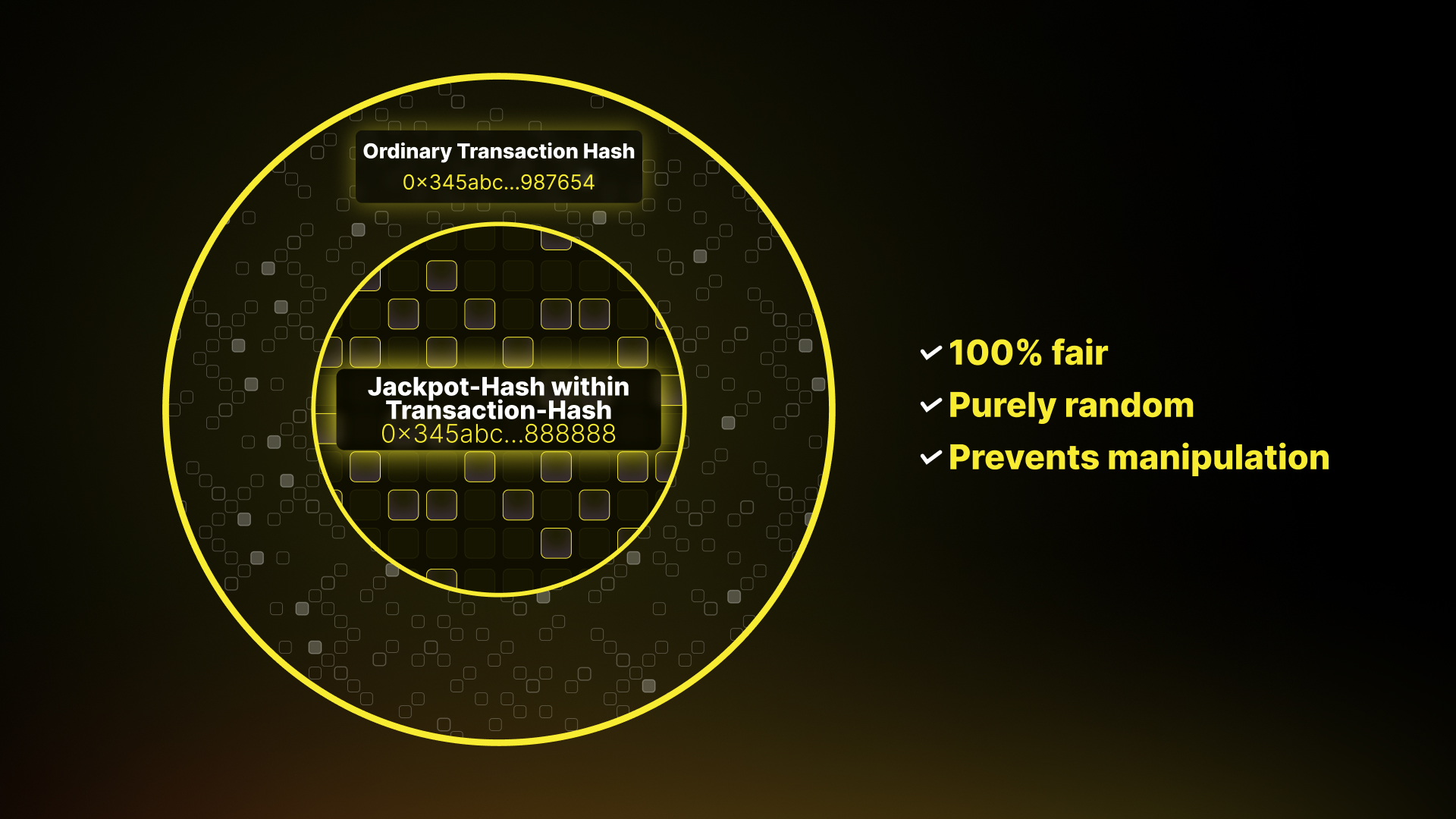Jackpot Hash
World's 1st lottery draw based on transaction hash within transaction hash
In order to create a pure random hash that can’t be manipulated, Fuyo leverages the existing cryptocurrency technology, aka ‘jackpot-hash within transaction hash’. This hash is a 32-bytes hexadecimal similar to transaction id (transaction hash).
Hash uses a SHA256 algorithm and the results are alphanumeric; "0 to 9 and A to F" or " 1 2 3 4 5 6 7 8 9 0 A B C D E F".

How it works?
A random hash is generated in the bet function when the user places a bet. The hash then stores a new verified smart contract for the public to check with their UID and ticket id.
The jackpot hash is computed from block.timestamp, blockhash(block.number), userID, ticketID, and secret key.
block.timestamp - timestamp(in seconds) of the block that executes the transaction.
blockhash(block.number) - block hash(similar to transaction hash) of the block that executes the txs.
userID - Each userID is generated from Fuyo’s database, therefore, is separated from public blockchain data.
ticketID - User’s bet number (ticket ID) is also generated from Fuyo’s database, therefore is unique for each bet.
secret key - cryptographic generated keys generated, therefore is unique and random for each bet.
block.timestamp and blockhash(block.number) will only disclose after the block is confirmed, so it is impossible to predict whether a submitted transaction will get the desired hash, therefore, it provides 100% random number and complete fair results.
These variables then compute with the popular hash function keccak256 into a hash that will emit through events within the bet transactions. Users are able to check their hash through logs in Etherscan-like block explorers.
To understand more of Fuyo's lottery jackpot-hash payout, please refer to Fuyo Jackpot section.
Last updated